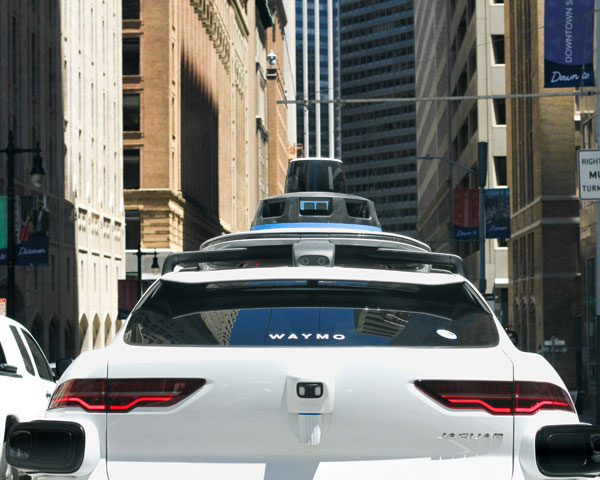Waymo expands autonomous vehicle services to Los Angeles and San Francisco

[Waymo cars are slowly being integrated for public use. Photo Credit to Unsplash]
Recently, Los Angeles streets have seen an influx of intriguing vehicles: Waymo’s self-driving taxis, developed by Google’s research lab and equipped with numerous cameras and a large lidar sensor on the roof.
Waymo LLC, also known as the Google Car, is at the forefront of the self-driving car industry.
This Google self-driving subsidiary has expanded its paid ride-hailing services to San Francisco, enhancing urban transportation and offering residents more mobility options.
According to reports from U.S. financial media such as CNBC, Waymo has received approval from the California Public Utilities Commission (CPUC) to expand its commercial operations.
The commission stated, "Waymo can begin operating driverless passenger services in certain areas of Los Angeles and the San Francisco Peninsula starting today."
Waymo is steadily expanding its services by accepting reservations and usage requests through the Waymo One app.
The app’s interface is similar to those of other popular transportation apps like Lyft and Uber, commonly used in the United States.
When an address is entered, the price is instantly calculated and displayed.
Some may notice that Waymo’s prices are slightly higher compared to the distance traveled than other services.
However, there is the advantage of not requiring a tip for a robot taxi, as opposed to Uber or Lyft drivers.
On the other hand, Waymo’s rival robot taxi company, Cruise, experienced a major setback on October 2nd of last year when one of its vehicles was involved in a serious incident in San Francisco.
During the incident, the vehicle reportedly dragged a pedestrian approximately 6 meters after being involved in another accident.
Cruise, another autonomous taxi service operating in San Francisco, faced heightened scrutiny following this event, which raised concerns about the safety and reliability of autonomous vehicles.
As a result, California suspended Cruise's autonomous testing permit, prompting the company to halt all autonomous vehicle testing across the United States.
This incident contributed to growing skepticism towards robotaxis, with additional reports of Waymo vehicles being vandalized and set on fire by crowds in San Francisco.
These events underscore the challenges and public resistance that autonomous vehicle companies must navigate as they strive to innovate in the transportation industry.
In the tech industry, concerns about Waymo have reportedly grown due to Cruise's crisis, prompting Waymo to issue detailed reports to address and mitigate these concerns.
To bolster the public’s confidence in their technology, Waymo has been focusing on collecting and presenting extensive data to demonstrate the reliability and safety of their autonomous vehicles.
This data-driven approach aims to provide clear evidence that their vehicles can operate safely on public roads, even in complex and unpredictable environments.
By analyzing vast amounts of data from their extensive testing and real-world operations, Waymo hopes to showcase the advancements and safety measures that set them apart in the industry.
Ultimately, Waymo's proactive measures and data-driven approach aim to solidify public trust and pave the way for the broader acceptance and adoption of autonomous driving technologies.

- Kunwoo Lee / Grade 12 Session 7
- The Science Academy STEM Magnet

![THE HERALD STUDENT REPORTERS [US]](/assets/images/logo_student_us.png)
![THE HERALD STUDENT REPORTERS [Canada]](/assets/images/logo_student_ca.png)
